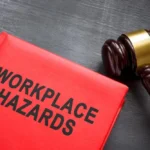We understand that experiencing a car accident can be incredibly stressful and unsettling. It’s important to know that injuries can sometimes take time to become apparent after such an event. In some cases, they can manifest almost instantly, while in others, it can take hours, days, or even weeks for symptoms to appear. The delay is often due to the initial adrenaline rush and shock, which can temporarily mask pain and discomfort. So, how long after a car accident can injuries show up?
Common injuries like whiplash, concussions, or soft tissue injuries, for instance, may not present symptoms until days after the accident. Psychological impacts, such as anxiety or post-traumatic stress disorder, can also develop over time, sometimes becoming evident weeks or months later.
Your health and well-being are paramount. If you’ve been involved in a car accident, please ensure you seek medical attention as soon as possible. Even if you don’t feel immediate discomfort, a healthcare professional should assess your condition to detect any possible injuries and provide appropriate care. Your safety and recovery are what matters most, and this early assessment can make a significant difference.
Please remember that this information isn’t a substitute for professional medical advice. If you have any concerns about your health following a car accident, it’s essential to reach out to a healthcare provider. Take care of yourself during this challenging time.
What are delayed symptoms after car accident?
Delayed symptoms after a car accident refer to physical or psychological signs of injury or trauma that do not appear immediately after the accident but become apparent hours, days, or even weeks later. This can happen due to the adrenaline and stress response after a traumatic event, which can mask pain and discomfort.
Is it possible to experience delayed pain and symptoms after a car accident?
Yes, it’s absolutely possible to experience delayed pain after a car accident. Due to the sudden surge of adrenaline and stress hormones in the body during a traumatic event, you may not immediately feel the full extent of any injuries.
What are some examples of delayed pain?
Some common types of delayed pain and symptoms can include:
- Headaches: This could be a sign of a concussion, whiplash, a neck injury, or in more severe cases, a blood clot in the brain.
- Neck or shoulder pain or stiffness: These are common symptoms of whiplash, a common injury in car accidents, especially rear-end collisions.
- Back pain: This could indicate a muscle, ligament, nerve, or spinal injury.
- Numbness or tingling: This could be a sign of nerve damage or a herniated disc.
- Abdominal pain or swelling: This could be a sign of internal bleeding. Other symptoms of internal bleeding can include dizziness, fainting, or deep bruising. This is a serious condition that requires immediate medical attention.
- Emotional pain, distress, or changes in personality: Symptoms of post-traumatic stress disorder (PTSD), anxiety, and depression may appear some time after the accident.
- Difficulty with memory or concentration, changes in sleep patterns, or mood changes: These could be signs of a traumatic brain injury.
Given these possibilities, it’s critical to seek medical attention after a car accident, even if you initially feel fine. A healthcare professional can provide a proper examination and diagnosis to ensure any potential injuries are identified and treated early. Always remember that this information is not a substitute for professional medical advice.
My head hurts after a car accident, what should I do?
It could indicate a concussion, whiplash, a neck injury, or even a blood clot. It could also be related to the stress and tension of the accident itself. Because the potential causes vary in severity, it’s important that you seek immediate medical attention.
Please contact your healthcare provider right away or, if the pain is severe or accompanied by symptoms like confusion, loss of consciousness, nausea, vomiting, or changes in vision, go to the nearest emergency room immediately.
Even if these additional symptoms are not present, it’s still important to get evaluated as soon as possible. A healthcare professional can give you a thorough examination, possibly including imaging tests like a CT scan or MRI, to check for any injuries that may have resulted from the accident.
How do I know if I’ve had soft tissue injuries in a car accident
Soft tissue injuries refer to damage to muscles, ligaments, and tendons in the body. These injuries are common in car accidents due to the sudden impact and force involved. However, recognizing soft tissue injuries can be challenging as they often don’t show up on standard X-rays and the symptoms can sometimes take hours, or even days, to appear.
Here are some symptoms that could indicate you’ve had a soft tissue injury from a car accident:
- Pain or discomfort: This is the most common symptom. You may feel pain at the site of the injury, which can range from mild to severe.
- Swelling: An injury can cause inflammation and swelling in the affected area.
- Bruising: You might notice bruises around the area of injury.
- Stiffness or loss of flexibility: You may have difficulty moving the affected area or experience a reduction in range of motion.
- Weakness: The injured area may feel weaker than usual.
- Muscle spasms: Injuries can sometimes cause involuntary muscle contractions.
If you experience these symptoms following a car accident, you should seek medical attention. A healthcare provider can perform a physical examination and may use other diagnostic tools, such as Magnetic Resonance Imaging (MRI) or ultrasound, which can help identify soft tissue injuries.
Additionally, it’s important to note that not all soft tissue injuries are apparent immediately after a car accident. Symptoms like pain and stiffness may develop several days after the incident, a condition often referred to as whiplash associated disorder. Thus, even if you feel fine immediately after the accident, it’s still recommended to have a medical evaluation to ensure any potential injuries are identified early.
As always, this information is meant to be general advice and isn’t a substitute for medical advice from a healthcare professional. If you’re feeling unwell or are concerned about potential injuries after a car accident, please seek medical attention promptly.
Contact 388Ceda
If you are still unsure, contact the Miami Car Accident clinic at 388Ceda for more information. Our professionals are standing by.





